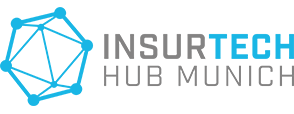In modern knowledge societies, processing using data is a major task – not just during a pandemic. Munich-based start-up Curiosity has developed a software helping to exploit the goldmine of information that lies in unstructured documents.

How can technology help fight a pandemic? As the corona virus started spreading, a set of more than 45,000 scientific medical papers was uploaded to the internet by the American government and scientific groups. They called on the data science community to help researchers deal this vast amount of data. That was a perfect fit for the startup Curiosity, one of the 40 participants of the 2020 InsurTech Hub Munich Innovation Programme: The Munich-based entrepreneurs rapidly developed a search algorithm for scientific papers and built an open tool to help answer medical questions about COVID-19. Curiosity’s search tool uses machine learning combined with knowledge graph technology.
Together with his co-founder Rafael Oliveira, Leon Zucchini wants to help companies access the goldmine of knowledge in their unstructured documents: “We want to deliver on AI’s promise to benefit businesses and economies by considerably increasing productivity.” Leon explains: “One thing we noticed in prevoius corporate jobs: We sat at our desks working on the latest AI systems, while in the office right next door this topic was so far away in daily work routines that it was almost shocking. It’s about time to move AI away from hype and into the hands of real end-users.”
Curiosity’s solution increases the process efficiency and reducing unnecessary rework by giving employees access to the information they need and helping them to focus on the creative parts of their jobs. Curiosity develops its AI technology in-house, engineering for the speed and stability required by customers like Airbus, Telefonica, Siemens and Infineon.
While their technology core is flexible – think intelligent database – Curiosity focuses mainly on solutions for AI-powered search and topic mining. For example, for a large industrial company they built a quality-monitoring tool: It reads hundreds of thousands of text reports and flags problems that have come up before. That helps the teams efficiently find existing solutions and identify emerging issues causing lots of problems.
It all started with a cat, colourful feathers and cooking evenings – curios?

Leon and Rafael were friends long before they founded the company. They even live in the same street and enjoy cooking and pondering the future of Curiosity over a glass of wine. It was on an occasion like this that they came up with the company brand: “A few months after we founded and designed our logo – the profile of a cat’s head – Harvard Business Review published a story with the headline “The Business Case for Curiosity” and put a cat covered in colourful feathers on its title page”, Leon explains. “You can’t make that kind of thing up!”
“Founding an AI company was a natural choice because we’re passionate about the technology and we’ve worked in the field before,” explains Leon who grew up in South Africa but has spent most of his life in Germany. He has 15 years of experience in consulting, market research and data science and holds a PhD in management from LMU Munich. Rafael is from Brazil and has spent six years as an engineer in the central research team at Airbus where he focused on applied mathematics and AI. He holds a degree in Aeronautical and Astronautical Engineering from Sao Paulo University.
Understanding AI to improve the Insurance industry
Linking up with the insurance industry by applying for ITHM’s Innovation Programme was a natural step for Curiosity.AI – especially since they are located in the same building as the ITHM’s office at Werk1, the most startup-friendly place in Munich.
“Insurance companies work a lot with documents so we see a great benefit in our product for this industry”, Leon says, “and we will benefit from being part of the InsurTech Hub Munich network.” He adds: “An accelerator programme is, in the beginning, an unstructured crowd of participants and ideas. Over time we establish relationships both with fellow participants and corporate partners or mentors, optimizing our business models. Artificial intelligence can do many things – but it cannot fully replace interaction with people and learning from each other in personal exchange.”

Text: Daniel Lange

